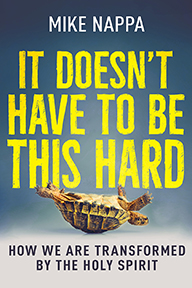An Editorial Team reason for rejection
In 1631 Robert Barker and Martin Lucas were the royal printers in London. Imagine their pride when, by order of King Charles I himself, they were commissioned to publish a new edition of the King James English version of the Bible.
All went well for Barker and Lucas, and their publication of the Scriptures was considered a general success, until…
About a year later, it was discovered that a compositor error had omitted a single, tiny little word (“not”) from Exodus 20:14. The result of that teensy error in sentence structure? God’s 7th Commandment now read: “Thou shalt commit adultery.”
Barker and Lucas were publicly reprimanded, fined what was then an enormous sum, and stripped of their printing license.
Still, Barker and Lucas were in good company. Some 20 years earlier, in 1611, the first edition of the King James Bible also contained a muff. A reference in Ruth 3:15 was inadvertently misspelled, which caused the biblical heroine to be identified “he” instead of “she.”
Why do I tell you these stories? Because I want you to understand that words have meaning and consequence.
If your words are garbled, misspelled, grammatically-challenged, omitted, duplicated, misused, or otherwise incoherent, your meaning is lost. The consequences of that kind of presentation is that I will be both frustrated by you and doubtful of your credibility as an author.
Hey, you claim to be an author, but you can’t even string together a coherent sentence? Very funny joke. But I’m not laughing.
Yes, a certain amount of typographical error is to be expected in any lengthy piece of writing, your book proposal included. But if I begin to see more than just a few inadvertent typos or even one glaring error in the way you use our language, your proposal won’t last very long in my hands. It’ll be rjectd. Excuse me. I mean rejected.
What You Can Do About It
1. Memorize this website address: Dictionary.com
I’m amazed how many authors simply don’t double-check when they use unfamiliar words. On more than one occasion, I’ve actually sat with an author, looking at a manuscript, and asked, “What does this word mean?” My question is always sincere—if I don’t know something, I’m the kind of guy who isn’t embarrassed to ask about it. Too many times the author has looked blankly at me and either stumbled through a guess at the meaning or simply said, “I don’t know exactly.”
Crazy. Why give away precious real estate in your manuscript to a word whose meaning is unsure to you? Look, words are more than just tools. They are the gems you use to decorate the jewelry of your prose. Guard them. Study them. Know them.
And visit Dictionary.com for instant help or even just to expand your vocabulary. When it’s this easy, you have no excuse for word abuse.
2. Keep this book next to your computer: The Pocket Wadsworth Handbook
You may feel like an uneducated high schooler when you buy this book, but it’s worth it. The Pocket Wadsworth Handbook by Laurie G. Kirszner and Stephen R. Mandell contains—in easily-accessible, clearly organized sections—all the grammar and spelling rules you and I should have memorized before going to the senior prom.
I actually discovered this book when I was teaching English Composition at a state university. So many of my students had graduated from high school without basic grammar skills, that I was constantly frustrated by having to explain again what they should have already known. Finally, I required every student to buy this book, and then I just started marking their papers with notes for them to study certain pages from it.
Now, don’t tell my students this, but along the way I discovered I didn’t know as much as I thought I did about grammar and spelling! So I kept this book, and I still use it as a reference whenever I’m unsure of whether to use “lay” or “lie,” or when it’s appropriate to use a semicolon. I’d recommend you keep a copy nearby as well.
3. Swallow your arrogance.
Some writers are almost haughty about their grammar and spelling skills—or dismissive of their lack of expertise in those areas. Those people deserve the rejections they receive. Don’t be one of them.
Instead, when you’re done writing, assume the worst. Recognize that even your best effort is going to be pock-marked with errors and unintentional corruptions. Go ahead and swallow your pride and take steps to eliminate (as much as you can) the mistakes you know are there. Here’s a process I use that, while not perfect, certainly helps:
- Spell- and grammar-check. Use the basic spell-check function in your software to catch obvious errors.
- Re-read the manuscript word for word, beginning to end, on your computer. (I’m always amazed at how many stupid mistakes this reveals, like words left out of sentences, cut-and-paste casualties, and confusing word choices.)
- Spell- and grammar-check again.
- Print hard copy and read it, word for word, beginning to end, marking corrections with a pen. (Again, there are always obvious errors that I should have caught earlier when I do this!)
- Make corrections on the computer file. Spell-check and grammar-check again.
- Find a friend or family member to read the manuscript and mark errors.
- Make corrections…and pray you caught everything!
Looking for more? Check out these links:












